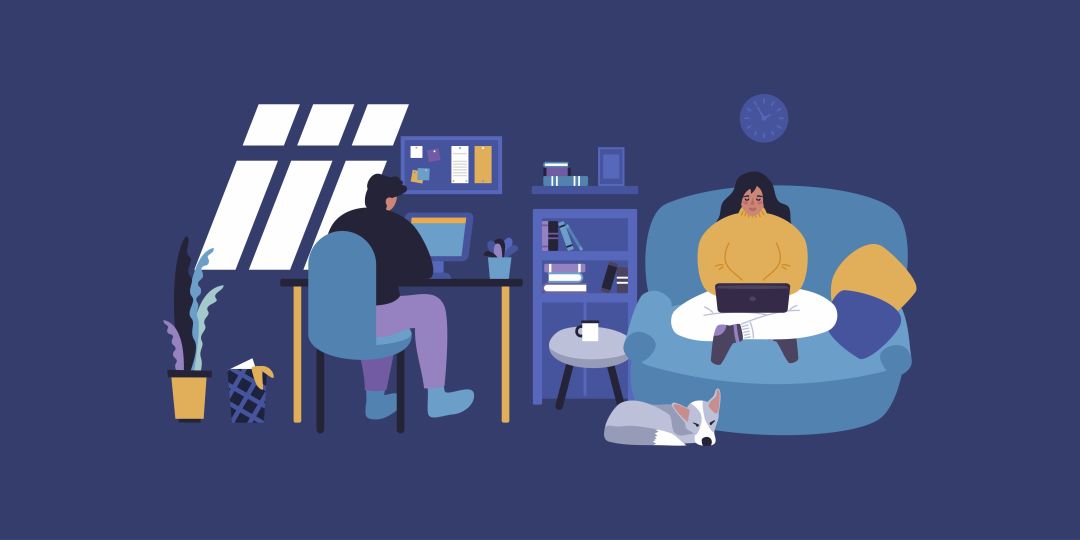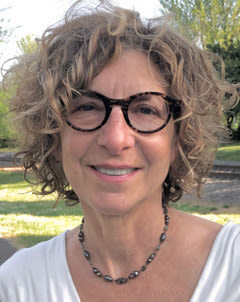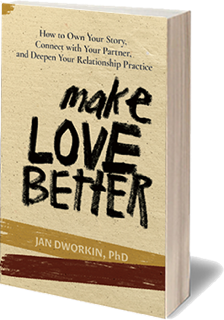Portland Couples Therapist Studies the Impact of Shelter-in-Place Orders

Since the start of the coronavirus outbreak, Portland-based author and couples therapist Jan Dworkin has been studying the impact of shelter-in-place orders on relationship life. “I believe that couples have a lot to teach the world,” Dworkin says. “There’s a lot of opportunity for social transformation that could come through the work of couples.”
What’s the old proverb? Absence makes the heart grow fonder: the idea that absence can actually grow the affection we have for friends, family, and loved ones, an idea that been proven anecdotally and scientifically.
So when governors across the nation established executive orders in response to the coronavirus telling people to stay home, Jan Dworkin, a Portland-based author and couples therapist, started working intensively with couples to study the impact of these orders on relationship life.
Since cofounding the Process Work Institute (PWI) in Portland in 1990, Dworkin’s work has focused on communication, power dynamics, sexuality, trauma, addiction, creativity, and dream work, as well as relationship management and conflict. “I also believe that the kinds of struggles that people deal with in intimate relationships can teach the world,” she says about her desire to normalize couples’ problems. “There’s a lot of opportunity for social transformation that could come through the work of couples.”
After facing her own sense of shame and isolation from unhealthy relationships and others that didn’t work out, Dworkin says she wanted to highlight the truth about couples’ struggles. “I vowed to myself that if I got through that time and really came out the other side, that I wanted to do something that made couples feel less crazy about the troubles that they had,” she says.
Fast forward 30 years, when a looming pandemic has forced society into their homes. What’s happening to couples beyond their social media feeds, curated to show only the best for public consumption? What’s going on when the windows and doors close after the nightly 7 p.m. chorus of pots and pans in celebration of our health care front line? Dworkin wanted to know.

Throughout April, Jan Dworkin hosted Couples in Community: Navigating Distance and Closeness in the time of COVID-19, an online class through the Process Work Institute that looked at relationship challenges arising as a result of stay-home orders. "I wanted to give something back to the community at this time, you know, use my skills to be able to offer something to people," she says.
Image: Courtesy Jan Dworkin
Throughout April, she hosted Couples in Community: Navigating Distance and Closeness in the time of COVID-19, an online class through PWI that looked at relationship challenges arising as a result of stay-home orders. Dworkin expected intimate, modest groups of participants; she ended up with more than 100 people and six different groups.
From these classes, Dworkin found vastly different reactions from couple to couple, but some more common themes: trauma histories, preexisting problems, power dynamics, opposing positions on news consumption and ways to personally protect from the coronavirus. All of these conflicts were being amplified. Sexual relationships were being challenged. Conflict was more common and prone to break out in atypical places. Some couples loved the shelter-in-place experience because it was time to reconnect and remember the reasons they fell in love in the first place. For other couples, particularly for those who may have had an abusive history, “it was really becoming horrific,” Dworkin says.
We asked Dworkin about these classes and the ideas she took away from them, as well as what we can all learn from “failed” relationships. In her own words:
This Pandemic Is About Boundaries
On a psychological level, this whole pandemic is about the issue of creating boundaries and dissolving boundaries, and it’s bringing to our attention the importance of both.
We see that this virus is infecting people regardless of their national borders, regardless of race, class, socioeconomics, gender. Now, of course, we know that there’s a lot of social inequality, and we know that the outcomes are not the same. It’s not an equal-opportunity virus. We know that it’s having devastating effects on communities of color, on poor people, in ways that it’s not affecting more affluent white communities, particularly here in the United States.
Having said that, there is this aspect of dissolving boundaries globally, in the sense that this is something that’s happening to all of us. And to really think we can put up national boundaries and we can be that separate from each other and we don’t have to have some kind of a global consciousness about how we’re sharing this planet together is absolutely, in my opinion, ridiculous, and this pandemic is pointing that out.
At home, there’s emotional boundaries and structural boundaries, and they’ve both been impacted by this virus…. There are all of these different aspects of our lives that are all happening in one place. And there’s been a lot of talk and a lot of writing about creating boundaries between the different experiences that you’re having so that one thing doesn’t bleed into the other.
We Influence and “Infect” Each Other
There’s this concept that comes from social psychology called emotional contagion. We’re neurochemically wired to pick up on each other’s emotions, so if you’re near somebody who’s really anxious or really angry you sort of pick up on those emotions and you could become really angry or really anxious yourself. Or you could unconsciously start to soothe the person or you could pick a fight with them. We’re influencing or infecting, so to speak, each other emotionally. It happens in relationships all the time. It’s not good or bad; it just is. But what’s really important is to develop some self-awareness around how that’s happening.
It’s really helpful if we can frame our experiences for our partners and tell them what we’re experiencing.
Some People Aren’t Meant to Be Together
Some relationships are destructive. If this sheltering together forces people to realize it’s time to end a damaging and destructive and hurtful relationship, I personally don’t think it’s a bad thing.

Make Love Better by Jan Dworkin
Image: Courtesy Jan Dworkin
One of the things I talk about in my book is this whole concept of failed relationships, which really is one of my pet peeves to think that if a relationship doesn’t last forever it means it was failed, as opposed to measuring a relationship based on how much you learned and how much you can grow from it and what you can take away, the value it’s contributed to your life and your development.
If the world can take something like that away from the pandemic, that would be an amazing thing. I fear this whole thing about, ‘Let’s just get back to normal.’ There’s a tragedy involved in that, because normal wasn’t working.




